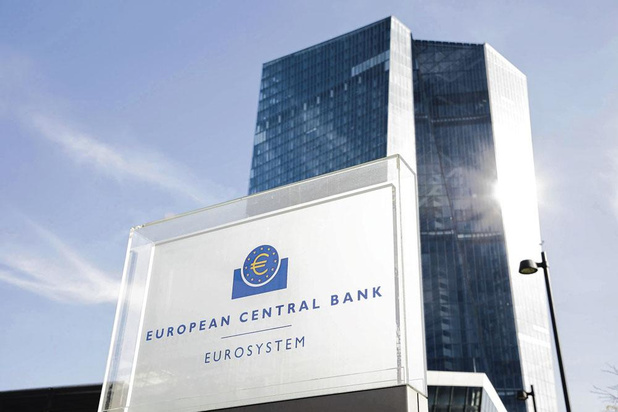Hemisphere : Faced with the coronavirus crisis, the ECB has implemented a massive purchase plan (PEPP and € 600 billion increase on June 4) of € 1,350 billion – and soon more – to try to support states in the face of future spending. How do you perceive the monetary policy conducted by the ECB since the start of the Covid-19 crisis?
SJ: I see three good news and one bad one. The good news is that the ECB was able to avoid the mistakes of the previous crisis, where we had to wait until 2015 and the launch of quantitative easing before seeing the ECB rise to the crisis. This time, and despite a small initial failure on March 12, Christine Lagarde was able to convince the Board of Governors that it was necessary to intervene preventively in order not to re-activate the old fears of contagion of interest rate spreads in the crisis of the euro. The second good news is that by doing this, the ECB has rejected, at least for the moment, the temptation of some of the leaders to resort to the good old austerity cure to cover the cost of this crisis. . The ECB’s action not only helps maintain the fiscal capacity of States, but this will also support the stimulus fund fairly directly, since the debt securities issued by the Commission will logically be eligible for the PEPP. The third good news is that by doing all this the ECB has de facto freed itself from the shackles of the legacy of the euro area crisis, according to which direct intervention by the ECB would have required a assistance program via the MES, which itself enables the activation of the ECB’s OMT program. With the establishment of the PEPP, the ECB has completely freed itself from this ineffective straitjacket, the toxic conditionalities of which poison European debates. Thanks to the PEPP, which further compresses sovereign debt rates, the ESM has largely become unnecessary. since the debt securities issued by the Commission will logically be eligible for the PEPP. The third good news is that by doing all this the ECB has de facto freed itself from the shackles of the legacy of the euro area crisis, according to which direct intervention by the ECB would have required a assistance program via the MES, which itself enables the activation of the ECB’s OMT program. With the establishment of the PEPP, the ECB has completely freed itself from this ineffective straitjacket, the toxic conditionalities of which poison European debates. Thanks to the PEPP, which further compresses sovereign debt rates, the ESM has largely become unnecessary. since the debt securities issued by the Commission will logically be eligible for the PEPP. The third good news is that by doing all this, the ECB has de facto freed itself from the shackles of the legacy of the euro area crisis, according to which direct intervention by the ECB would have required a assistance program via the MES, which itself enables the activation of the ECB’s OMT program. With the establishment of the PEPP, the ECB has completely freed itself from this ineffective straitjacket, the toxic conditionalities of which poison European debates. Thanks to the PEPP, which further compresses sovereign debt rates, the ESM has largely become unnecessary. according to which direct intervention by the ECB would have required an assistance program via the ESM, itself allowing the activation of the ECB’s OMT program. With the establishment of the PEPP, the ECB has completely freed itself from this ineffective straitjacket, the toxic conditionalities of which poison European debates. Thanks to the PEPP, which further compresses sovereign debt rates, the ESM has largely become unnecessary. according to which direct intervention by the ECB would have required an assistance program via the ESM, itself allowing the activation of the ECB’s OMT program. With the establishment of the PEPP, the ECB has completely freed itself from this ineffective straitjacket, the toxic conditionalities of which poison European debates. Thanks to the PEPP, which further compresses sovereign debt rates, the ESM has largely become unnecessary.
The bad news is that fundamentally, the PEPP program does not really bring anything new in terms of method, since it is still debt purchases as the ECB has been doing since 2015, with the very limited effects on the real economy that we know (inflation has been anchored around 1% for six consecutive years!). Admittedly, monetary policy support translates into extremely low interest rates, but this does not in itself guarantee that economic agents will take advantage of this to take on more debt and thus revive demand. The effect is therefore very indirect, and in this there is no innovation on the part of the ECB in this regard.
Hemisphere: In this context, why do you think the ECB’s monetary policy should be supplemented?
SJ : Of course, the ECB is always doing more in terms of injections of money, but basically it is always the same old intellectual software that predominates its action: the idea that the only way for the ECB to conduct its policy in the real economy is to influence the interest rates in the markets and by “anchoring” the expectations of investors on the rate of inflation in the medium term.
The transmission of the ECB’s monetary policy into the real economy is too dependent on the action of banks (and businesses and households willing to borrow!).
To compensate for the inanity of the markets to act as a transmission belt for monetary policy, the ECB is now calling for a relay of fiscal policy. While it was alarmed about the sustainability of public debts, this rhetorical turnaround by the ECB seems quite spectacular, but in reality, this does not hide the very powerlessness of the tools of monetary policy.
Despite all the good intentions, the budgetary response to the Covdi19 crisis is doomed to disappoint, as countries in difficulty are forced not to spend enough to maintain their credibility. At European level, the European recovery fund is unfortunately doomed to be insufficient, given the state of negotiating forces at European Council level.
In this context, the ECB will nevertheless have to find a way to accomplish this without a mandate, while its current tools have shown their limits. This is where the helicopter currency comes in. The ability of the ECB to inject liquidity directly into the economy, without depending on financial intermediaries or on hypothetical budgetary action is a sinequanone condition for allowing the ECB to achieve its inflation target independently.
Hemisphere: Can you detail your helicopter currency proposal?
SJ : Our proposal is intentionally not as precise as some of the other promoters of the idea, because with Positive Money Europe (the NGO that I lead), we see our role above all as a facilitator of the implementation of the concept, with the aim of ensuring that the ECB is ready to activate this tool as quickly as possible. Our priority is therefore to bring about (or clarify) a political consensus around the concept of a direct payment from the ECB to citizens, so that the ECB has the political legitimacy to take action. Our preferences in terms of applications go only in the direction of ensuring the technical, legal and political feasibility of the operation.
However, in our last paper in April 2020 on this subject, we put forward the proposal for a payment of 1000-2000 euros at one time, to all residents of the euro zone. This amount is above all illustrative: it corresponds to around 1% of the euro zone’s GDP. Of course, the ECB should undertake to renew the payment as soon as it observes too low inflation and a risk of deflation, according to a rule to be defined in advance to anchor market expectations.
Payment could be made through commercial banks in coordination with Member States. There is also the idea of a central bank electronic money, which would probably be a simpler technical option in the long run.
In all cases, the technical implementation must not delay the implementation. This is why we discussed the idea that payment could be made tomorrow for those who need it the most; by forcing the banks to grant an unconditional bank overdraft at no cost to households, which would then be offset by the actual payment of helicopter money.
The most difficult question in my opinion is that of the parameters of the beneficiaries: who should receive the money? Everyone, without distinctions? Only the poorest? What about the amount, should it be the same for single people or parents with children? And should it be equal in all euro area countries? In theory, it would be simpler and more legitimate to distribute the currency in a perfectly universal way, but in practice targeting to less affluent households (and therefore more likely to spend the money) would be more economically efficient.
These questions are very political, and it is to avoid getting wet in this kind of arbitration that central bankers usually say that helicopter money is a “fiscal measure”. As Benoit Coeuré recently indicated, the introduction of helicopter money “presupposes writing a check to each household according to criteria that are a matter of political choices. “
But unlike Coeuré, I think there is a fairly simple solution to this problem. Basically, it is the European Parliament (to which the ECB reports) that could define the eligibility criteria as part of a motion for a resolution. This would greatly help the ECB, which could use these recommendations to anchor the democratic legitimacy of helicopter currency. It is to resolve this dilemma that Positive Money Europe has been advocating since 2015 with the European Parliament so that it takes a position on this subject.
Hemisphere: Will it achieve the objectives of the mandate?
SJ : It is in any case the primary goal! We cannot give the ECB total independence and a narrow objective at the same time, without equipping the ECB with all the tools to accomplish this task. Without the possibility of resorting to helicopter money, the central bank is then dependent on the markets, or on the States to carry out fiscal stimulus. If we put the helicopter currency aside, there won’t be many tools left.
Having said that, I would not be surprised if the inflationary effect of a helicopter payment should disappoint expectations downwards, because of the structural phenomena of the current underinflation, in particular because of technological deflation, of the loss. the bargaining power of unions and globalization. These phenomena have been underestimated in the past. But that would not be a reason not to do it, but rather point to the difficulty of finding the right dosage.
As such, the advantage of helicopter money is that the transmission mechanism to the economy is much more direct, transparent and immediate. While a change in key interest rates may take several months to affect the real economy, the helicopter money payment would docks immediately, and its impact easier to anticipate and understand for consumers. Afterwards, its effects would also be easier to measure, and therefore to adjust if necessary. The monetary policy mix would be easier than with the current policy.
Hemisphere: How do you deal with the problem of the absence of assets in the balance sheet of the ECB?
Indeed, there is this fear that a possible bankruptcy of the ECB could lead to a loss of confidence in the ECB, which would lead to hyperinflation. But this is a very theoretical problem!
In practice, we know that central banks can quite operate with an unbalanced balance sheet, in negative capital. On the other hand, it seems to me that the idea that the quality of the central bank’s balance sheet determines consumer confidence in the currency is an untested hypothesis, and one that I personally think is highly improbable. The idea that we should bail out the ECB which itself creates the currency seems nonsense to me.
However, to satisfy the somewhat obtuse accountants of the ECB, several solutions are possible to avoid recording a deadweight loss on the ECB’s balance sheet. The most promising seems to me to record in assets a perpetual debt at zero rate, which will never be repaid.
Opponents will not fail to point out that according to its statutes, the ECB can only create money in return for “adequate collateral”. On this point, it is useful to recall that the notion of adequacy “is very vague. In practice, this notion relates to the financial conditions of the economy. The ECB has demonstrated this very clearly since 2008 by constantly relaxing the rules. asset quality requirements in its collateral framework Undoubtedly, the establishment of helicopter currency is also justified by an unprecedented deterioration in economic conditions.
Hemisphere: How does your proposal fit in with the European legal framework?
SJ : It is true that there is a legal vacuum in the sense that this scenario was not provided for in the Treaties. But unless we consider citizens as subjects of the state, it is clear that the payment of money to individuals does not constitute a form of monetary financing of governments as defined in article 123 of the TFEU. On the contrary, the interest of the measure is precisely to bypass state budgets so as not to create a situation of “fiscal dominance” which would harm the objective of price stability, which would be contrary to the spirit of the Treaties. .
In any case, it is remarkable that the ECB has never ruled out the possibility of helicopter money, despite the multiplication of requests and legal uncertainty. For example, in a letter to MEP Jonas Fernandez, Mario Draghi wrote that the only legal constraint would be a “perception” of confusion between monetary and fiscal policy.
Hemisphere: How does your proposal fit into the political game at the Board of Governors? NB. Your proposal risks being blocked by many so-called Orthodox countries – from a monetary policy point of view – led by Germany, which is opposed to any policy that risks creating too high inflation. The ghost of the 1920s is still very present here. Do you think you can be audible and break down ideological barriers?
SJ : Beyond the technical problems, there are two major obstacles. First, there is the objection to HD’s resemblance to fiscal policy, which actually raises the question of the central bank’s legitimacy to make explicit wealth transfers. As I have already mentioned, we believe that political validation by the European Parliament would solve this problem.
Second, it is the objection of the “slippery slope” towards fiscal dominance and the risk of the erosion of central bank independence, which would lead irreparably to hyperinflation. Opponents of helicopter money assume that once Pandora’s box is opened, there will be no limit to popular and political pressure to force the central bank to turn the billboard further. This vision seems to me caricature and sadly defeatist vis-à-vis the democratic institutions and the existing safeguards.
In the end, it all depends on how such an operation is set up, but unfortunately finding the right balance would require a more subtle debate on this subject than the one we have at the moment.
The supporters of monetary orthodoxy miscalculate. They prefer to postpone radical ideas such as helicopter money indefinitely in order to avoid breaking taboo subjects, but in the same way they are fueling populism against an independent central bank which is forced to go ever further in rates negative and asset buybacks without achieving its inflation target. This will lead the ECB to hold very large private and public debt portfolios for decades to come, whereas by resorting to helicopter money now, a rise in rates and a gradual exit from quantitative easing would be possible sooner. .
Hemisphere: How does your proposal fit in with fiscal policy? Do you fear a return to austerity-panic like after the 2008 crisis?
The risk of a return to austerity is real, because as the current tensions between the Netherlands and southern Europe reveal, a whole section of the European political elite has not grasped that the politics of low rate is the consequence of a permanent regime of under-inflation linked to a flagrant lack of demand. In reality, the low interest rate policy represents an opportunity to finance low cost public spending and investment in the low carbon transition. But after several decades of public propaganda on the risk of a crisis in public accounts, it is not abnormal that a large part of the population and politicians have not yet understood this. It is to avoid this danger that the ECB must be able to implement helicopter money.
Hemisphere: How does your proposal fit into the environmental transition?
SJ : In parallel with our helicopter currency campaign, Positive Money Europe has been campaigning since 2015 for the ECB to tackle climate change. In 2019, we won our case after Christine Lagarde announced the launch of a process to revise the ECB’s strategic framework, including on climate issues. As part of this review, which will run until June 2021, we are proposing to take environmental factors into account in all of the ECB’s tools such as quantitative easing or TLTROs.
But in my opinion this debate is relatively distinct from that on helicopter money, the almost sole objective of which is to ensure a level of demand that makes it possible to reach the inflation target. If the objective is to direct consumption towards certain greener services, then a carbon price policy would be much more effective in influencing consumption habits.
Hemisphere : What place for the participation of European citizens in your proposal?
SJ : The subject of helicopter money remains taboo in central banking circles, but also at the political level. With Positive Money Europe, we are trying to overcome this obstacle by mobilizing European citizens to put pressure. It is important for us to be able to show that we are the voice of a growing number of citizens who understand these financial and technical issues, because they concern us all.
Central banks are not used to communicating to the general public, but things are changing because they realize that their legitimacy has been weakened by the crisis and that they need to explain their policies to citizens. For example, the ECB has launched a public consultation on its website. These communication initiatives are an opportunity for citizens to impose helicopter currency in the debate. Citizen participation is essential to reach the general public and raise awareness among politicians, but also because central banks are not used to communicating with the general public.
 Stanislas Jourdan is the European Director of Positive Money, an association in charge of supporting research and promoting a conception of money capable of making the financial system more equitable, sustainable and democratic. After the Quantitative easing for the people project, the association notably promoted a form of helicopter currency based on a payment of 1000 euros to each European citizen (cf. references).
Stanislas Jourdan is the European Director of Positive Money, an association in charge of supporting research and promoting a conception of money capable of making the financial system more equitable, sustainable and democratic. After the Quantitative easing for the people project, the association notably promoted a form of helicopter currency based on a payment of 1000 euros to each European citizen (cf. references).
https://www.facebook.com/stanjourdan/posts/10223791094904545





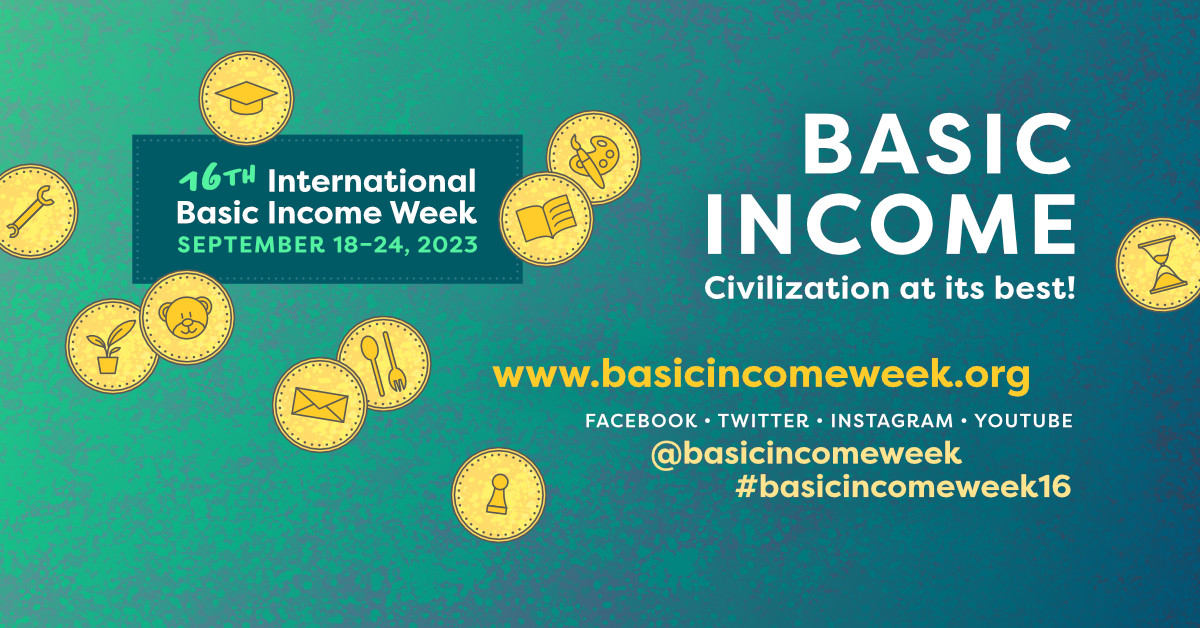
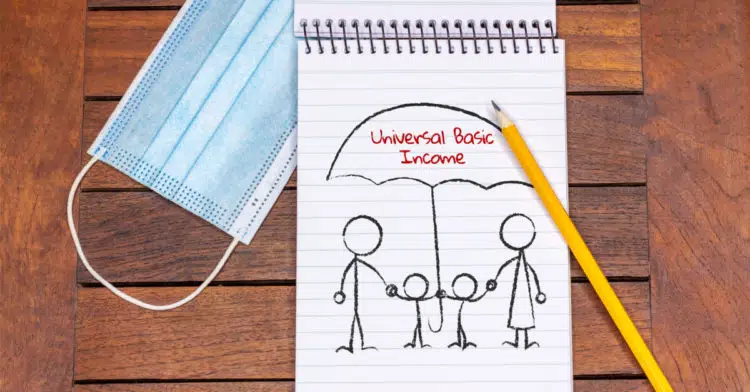
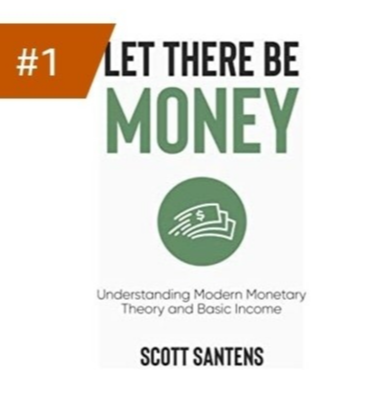

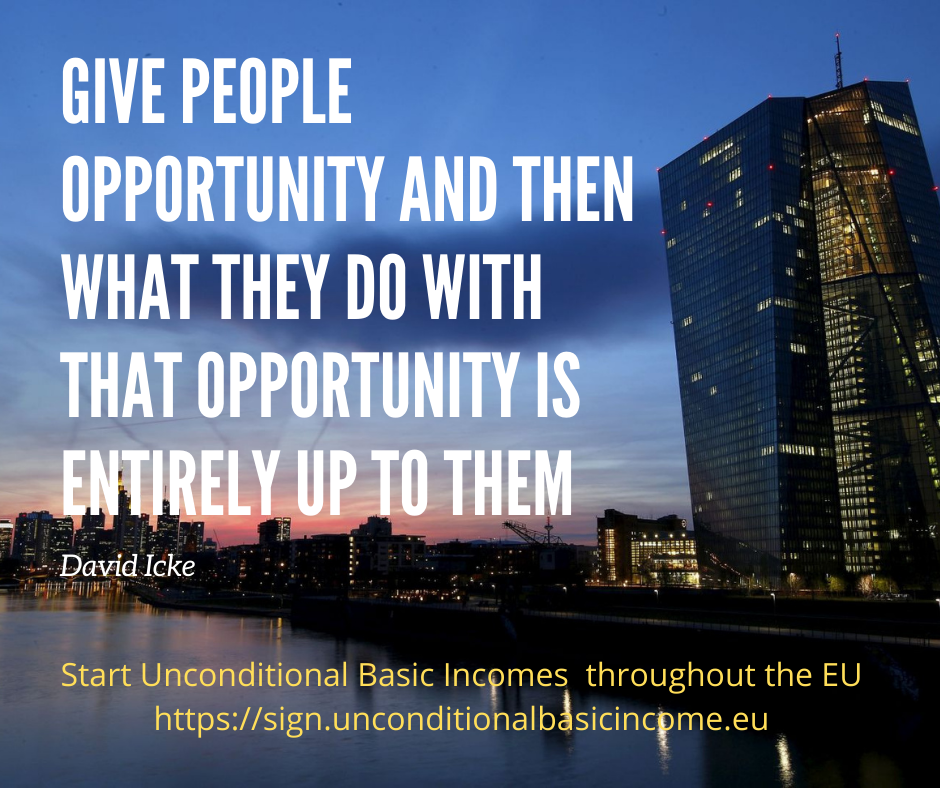
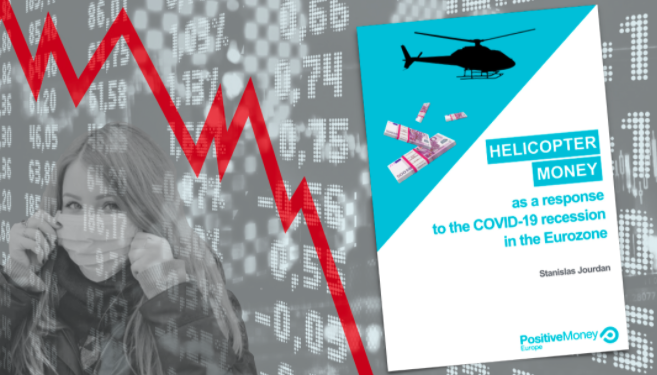
 Stanislas Jourdan is the European Director of Positive Money, an association in charge of supporting research and promoting a conception of money capable of making the financial system more equitable, sustainable and democratic. After the Quantitative easing for the people project, the association notably promoted a form of helicopter currency based on a payment of 1000 euros to each European citizen (cf. references).
Stanislas Jourdan is the European Director of Positive Money, an association in charge of supporting research and promoting a conception of money capable of making the financial system more equitable, sustainable and democratic. After the Quantitative easing for the people project, the association notably promoted a form of helicopter currency based on a payment of 1000 euros to each European citizen (cf. references).

 All over the world petitions are shared to ask for money. From temporal allowance during the Covid-crises to permanent Unconditional Basic Income.
All over the world petitions are shared to ask for money. From temporal allowance during the Covid-crises to permanent Unconditional Basic Income.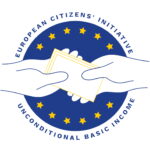 For the European Citizens, a new Citizens’Initiative wil start on the 25th of september 2020. During one year European citizens can sign to persuade the EC to support countries with the implementation of an Unconditional Basic Income. The goal is 1 million signatures.
For the European Citizens, a new Citizens’Initiative wil start on the 25th of september 2020. During one year European citizens can sign to persuade the EC to support countries with the implementation of an Unconditional Basic Income. The goal is 1 million signatures.
